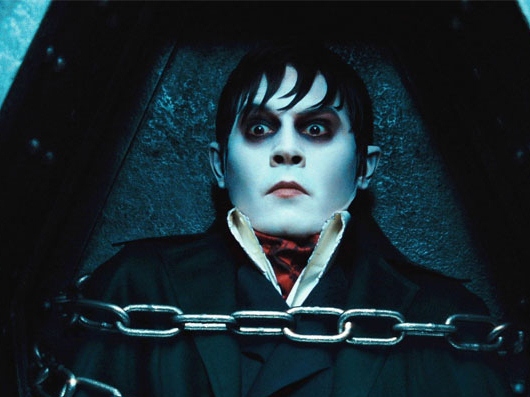Being a Tim Burton movie, the new “Dark Shadows” is an exercise in the sort of gothic fantabula with which the director’s fans are familiar–perhaps, by now, overly so.
It is also the eighth Burton film to star Johnny Depp. This has often been a good thing in the past: Depp’s natural star power is concentrated, in the manner of Harrison Ford, by his rather narrow range, and he’s an immensely likable performer.
Here, though, his trademark charm can’t fully animate a movie that, much like the 1999 “Sleepy Hollow,” tends to wander about in search of a purpose.
The story has been cleanly distilled by Burton vet John August and screenwriter Seth Grahame-Smith from more than 1,200 episodes of the supernatural soap opera that ran on ABC from 1966 to 1971, and lumbered around in syndication for many years thereafter. But the script’s attempted condensation of this meandering tale is frustrated by the necessity of making room for nine lead characters (10, if you count Alice Cooper, who’s brought in for a party sequence to perform his old “Ballad of Dwight Fry” as accompaniment to a shuddery flashback.)
The movie begins with a rich helping of backstory, in which we see that young Barnabas Collins (Depp), scion of a prosperous fish-canning family in 18th century Maine, was turned into a vampire by a jealous servant girl named Angelique (Eva Green), who was enraged by his rejection of her in favor of a dreamy young woman named Josette (Bella Heathcote). Angelique was secretly a witch, and after engineering Josette’s suicide, she saw to it that Barnabas, now an accursed bloodsucker, was buried alive (or undead) in a chained coffin for the next nearly 200 years.
Read the full review at Reason.com.

COMMENTS
Please let us know if you're having issues with commenting.